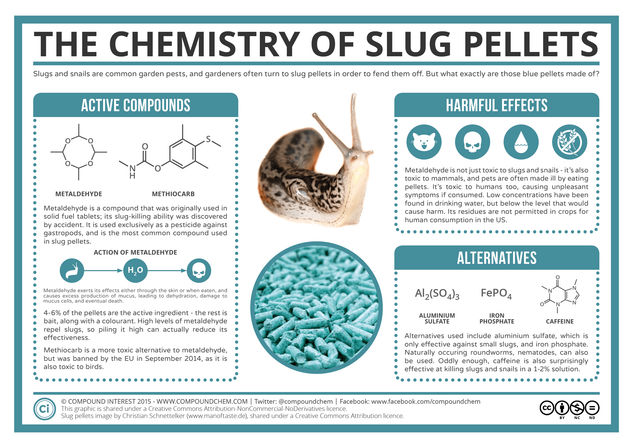© Compound InterestThe Chemistry of Slug Pellets
Slugs and snails are common garden pests, and gardeners often turn to slug pellets in order to fend them off. What exactly are those blue pellets made of, though, and can they pose a risk to other animals as well as molluscs? This graphic examines the compounds used, and their potential undesired effects, as well as some of the alternatives available.
The vast majority of slug pellets contain metaldehyde as the active, slug-killing ingredient. However, this compound isn’t one that was originally developed for this purpose. In fact, it was formerly sold as a solid fuel, in the form of tablets, for use in fire starters or camp fuels. Supposedly, its ability to kill slugs was noticed completely by accident by French farmers, who noticed that dead or dying slugs could be spotted in locations at which metaldehyde tablets had been left.







